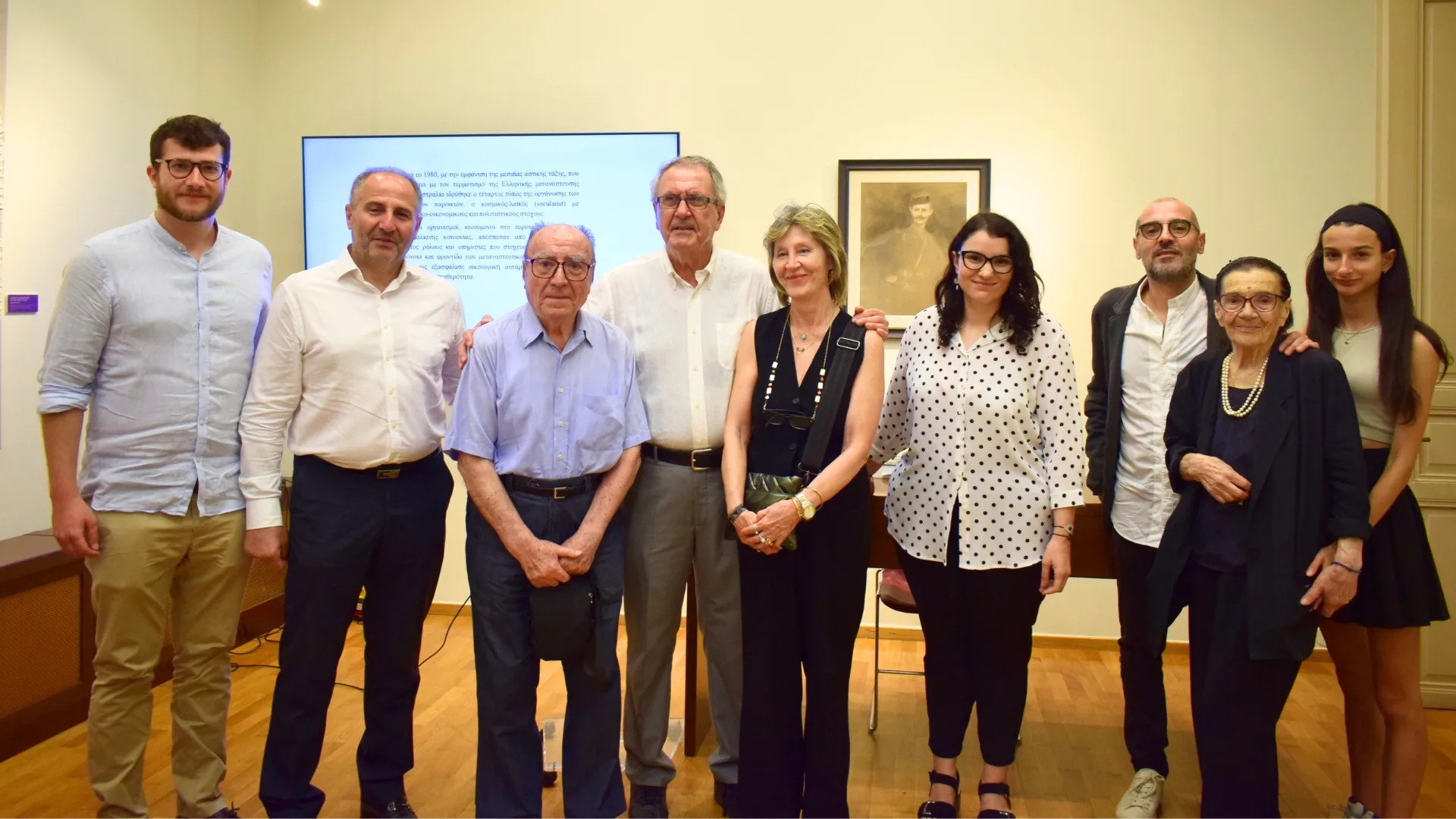In the presence of representatives of the Greek authorities, relatives and friends, a ceremony in memory of Zisis Dardalis, the Great Benefactor of the Australian Diaspora, took place in the lecture hall of the Foundation of the Museum of Macedonian Struggle in Thessaloniki.
The Director of the Museum, Mrs. Athena Pavlidi, praised the enormous contribution of Dardalis to Hellenism, thanked the Australian Institute of Macedonian Studies for the sponsorship of the Zissis Dardalis Memorial Grant, which supports the research program of PhD and postdoctoral research fellows who have as their subject Macedonia, its history and culture.
The ceremony was attended by a representative of the Metropolitan, the Region of Central Macedonia, the Director of the War Museum of Thessaloniki, the coordinator of the Prime Minister’s Office in Thessaloniki, academics, intellectuals, artists, Mr. Takis Ladas representing the Zisis and Sallis Dardalis Family, members of the Tsitotas family and a large number of researchers from the Museum.
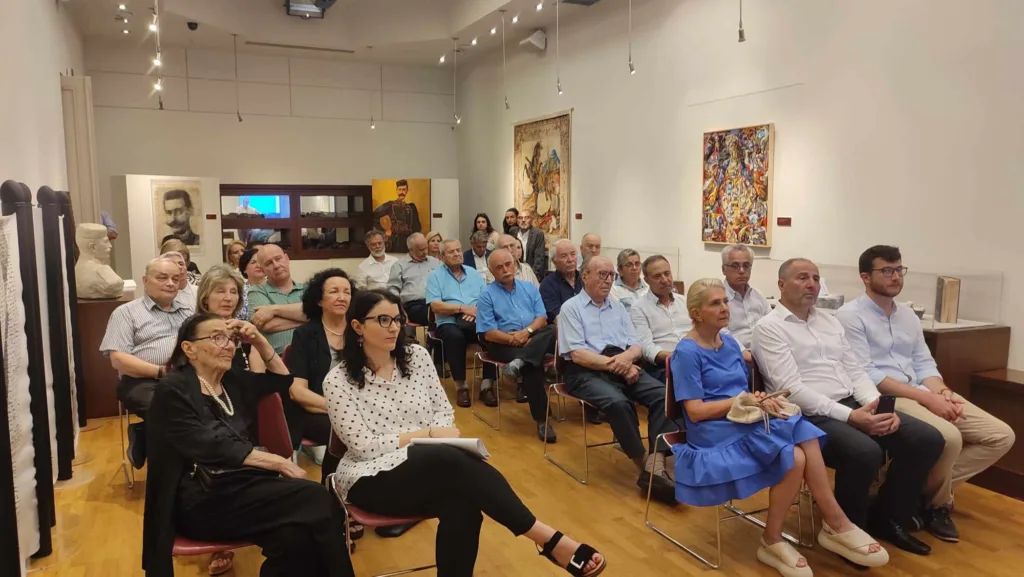
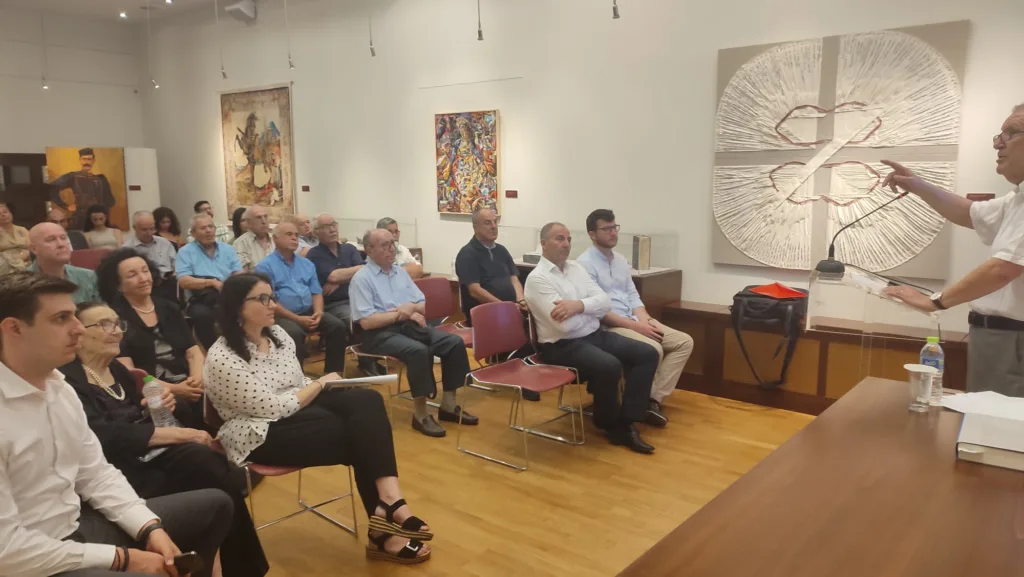
The main speaker at the ceremony for the late benefactor of the Greek community was Professor Anastasios Tamis, who presented the personality, the work, the contribution of Zisis Dardalis, and spoke about his difficult childhood, his orphanhood, the years of survival next to his uncle Nikos Dardalis.
Tamis referred to his father, Christos Tsiausis, a member of the national resistance of Western Macedonia against the Italians and Bulgarians along with the famous “Pausanias”, who was executed by the Germans when he was arrested after the surrender of Greek collaborators. He carried his sick wife to the hospital in Kozani and spoke of the years he lived in the orphanages of Florina and Aristotle in Thessaloniki, of the great love that “Jack Dardalis” had for the diaspora, the people, sports and Greek studies.
“Zisis Dardalis was certainly the most authentic, sincere and selfless benefactor of Hellenism in Australia. Honest in his dealings, cruel and impervious to the wicked, sensitive and fraternal with the people he loved, an extroverted patriot, a consistent fighter for the historical rights of Macedonia, intelligent and thoroughly innovative in trade, unsurpassed in feasting and entertaining, a good family man. A person of great character, he embodied his feelings, and his adoration of his parents which he did not coddle,” Professor Tamis said at the event.
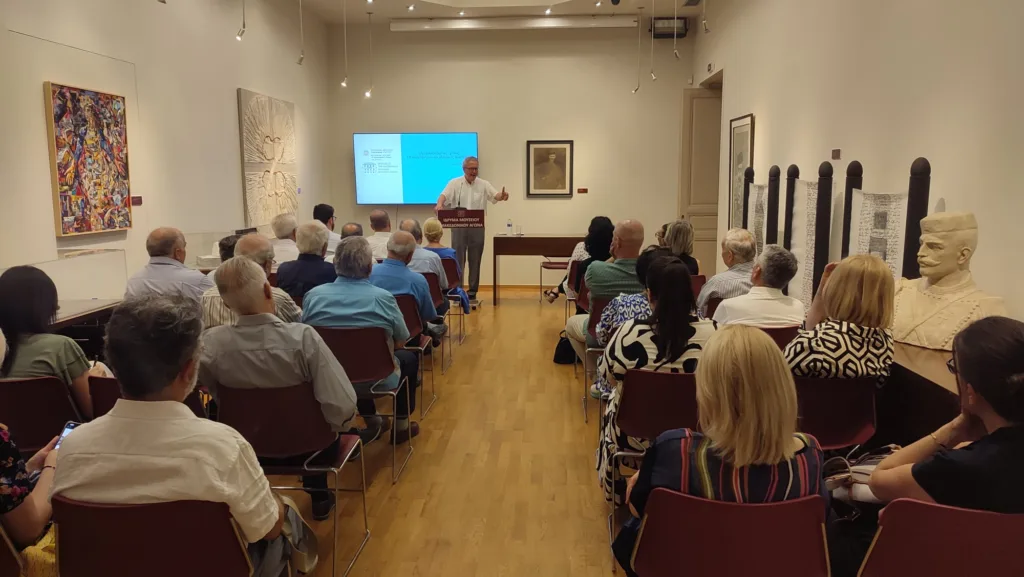
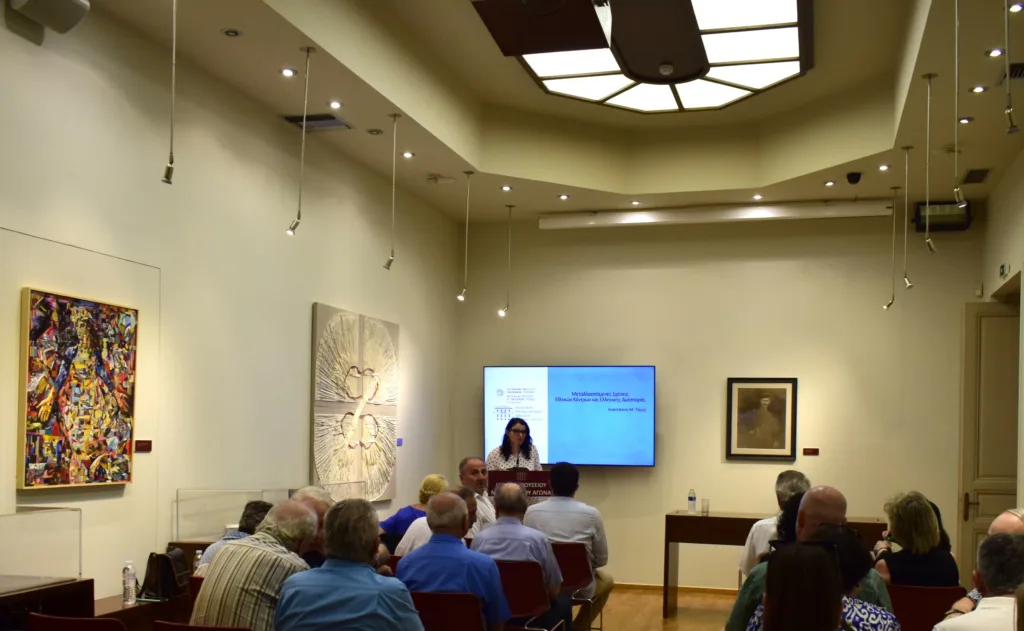
This was followed by a speech by Professor Tamis on the changing relations of the National Centres, Athens and Nicosia, with the Greek community.
The main points of Professor Tamis’ speech at the event were as follows:
- The Greek Nation, both within its ethno-linguistic geographical borders and in the Diaspora, for three thousand years now, has been intensely philanthropic. Through religion, literature, poetry and drama (tragedy and comedy) emerged. Our ancestors honoured their gods with magnificent monuments, statues, myths and hymns. They established religious games and sacred associations (Delphi, Delos, Vasses, Dodoni, Eleusis).
- The priests or high priests did not lead and mock our ancient ancestors. There was no class of clergy, priesthood in antiquity (there were classes of aristocrats, oligarchs, class of wise men, teachers, artists, sophists, philosophers), who rooted in human values, justice, bravery, respect and generosity.
- Alongside the philanthropic nature of the Greeks, during the same period they remained highly politically aware. They bequeathed to the whole community the idea of popular sovereignty, of democracy by the people for the people, where the politician functioned only as a proposer, leaving the people the right to decide. They also established worldwide the institution of political “punishment”. Those of their leaders who caused fear or anxiety with their entire political behaviour towards the people or democracy were exiled. Those politicians who harmed the public with their suggestions were imprisoned for life or fined because they believed in a participatory and interactive democracy.
- Religion and “politeia” were the two fundamentally valued regimes that guided the evolution of Hellenism, highlighting in time a parallel binary power, but without this binary power becoming or evolving in the classical period into a diarchy or synarchy.
- In Greek antiquity the dual power did not even have the sign of dualism, and this is because the priesthood did not function then as a social class of power, and most importantly the priests who were born were not the successors of a God, but their servants. With the prevalence of Christianity, an outgrowth of Asian theology based on succession, dualism as a model of power brought the regimes of religion and politics, sometimes as forces that were intrinsic and congruent, and sometimes as opposing each other.
